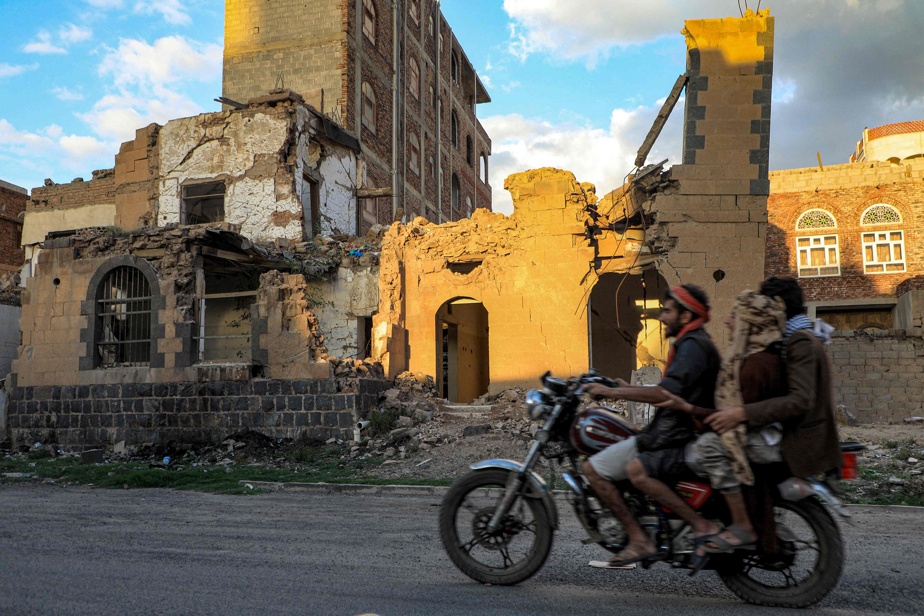Intensified talks between Saudi Arabia and the Houthi rebels who control large swaths of Yemen raise hopes for a lasting ceasefire and respite for a population hard hit by years of war that has claimed tens of thousands of dead.
A delegation of representatives from Riyadh traveled to the capital, Sanaa, this week to meet with senior leaders of the movement in the presence of Omani mediators.
The meeting is seen by many analysts as an indication of the willingness of both sides to reach a negotiated solution to the conflict, which has created, according to the United Nations, one of the largest humanitarian crises on the planet.
Bruce Riedel, a Middle East expert attached to the Brookings Institution, notes that the ongoing rapprochement testifies first and foremost to the recognition by the regime of Saudi Crown Prince Mohammed bin Salman of the reality on the ground.
The Sunni regime is not comfortable with the idea that the Houthis, Shiite rebels backed by Iran, will remain in power in the territory adjacent to their southern border, but they “cannot really” otherwise, Riedel notes.
“The Houthis are dominant politically and militarily,” said another expert on the region, Thomas Juneau, who sees the ongoing negotiations as an “important step” towards achieving a lasting ceasefire between the two sides and helping to stabilize the country.
An agreement formalizing the Saudi withdrawal from hostilities would not mean that calm would return to the whole territory, since other factions are engaged in the war and will want to continue to do battle with the Houthis whatever happens in the negotiations. underway, warns Mr. Juneau.
“The separatists in the south will never agree to recognize the authority of the Houthis over the whole country”, warns the analyst, who evokes, as another factor of destabilization, the presence of Al-Qaeda.
Riedel said tensions around the town of Marib, at the heart of an oil region the Houthis have been trying to control for months, could also undermine any permanent ceasefire.
A temporary ceasefire extended for months in 2022 expired in October without leading to a resumption of full-scale fighting.
The rebels, who now control the west of the country, invaded the capital in 2014. Saudi Arabia took the lead the following year in a coalition of Arab countries that launched a major military operation in to restore the fallen regime of former President Abd Rabbo Mansour Hadi, now sidelined by Riyadh.
In addition to multiplying the deadly air strikes, the member countries of the coalition imposed, with the help of the United States in particular, a maritime and air blockade which had dramatic consequences for the population.
A representative of the Yemeni chambers of commerce told Reuters a few days ago that the proposed relaxations will allow hundreds of products to be imported again, for example fertilizers.
Riyadh also proposes to ease the air blockade so as to allow the resumption of activities at the capital’s airport.
The United States, which sent a special envoy to help advance the ongoing talks, has long supported the Saudis regardless of the consequences for the population, Riedel notes. Two-thirds of the population now depend on humanitarian aid, according to a recent United Nations report.
The administration of President Joe Biden has decided to break with the approach of its predecessors and is seeking to take advantage of the opportunity offered by the announced restoration of diplomatic relations between Saudi Arabia and Iran, under the aegis of the China, to resolve the crisis.
“The Biden administration has the right attitude in deciding not to worry about how this recovery happened and instead to focus on the lowering of tensions that may result,” Riedel said.
The Chinese regime is heavily dependent on hydrocarbons from the Middle East and welcomes any development that could stabilize the region, said the analyst.
Mr. Juneau notes that the ongoing negotiations are also a “victory” for Iran, which welcomes the long-term maintenance in Yemen of an allied regime that shares its hostility towards the United States.
The Houthi takeover, the scholar notes, is “not good news” in this sense for Washington or for the population under the control of the rebels, who have established a theocratic regime reminiscent in many ways of that of the Taliban. .

